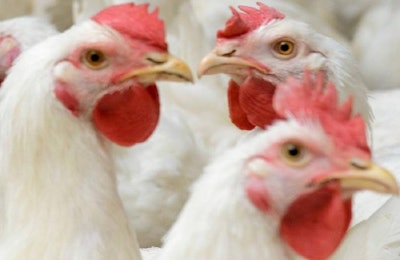
U.K.-based social impact investor, AgDevCo is providing US$255,000 in debt investment to help Kingchick Poultry of Tanzania modernize and expand its broiler business.
Founded in 2010 by Rose Sweya, Kingchick has expanded production from 200 broilers per cycle to an annual output of 130,000 birds per year supplied to one of the country’s largest poultry processors, as well as direct sales to agents and a local store.
“I would like Kingchick to supply quality chickens at an affordable price to accommodate both lower and upper class people,” said Sweya, who is now the CEO of Kingchick Poultry.
AgDevCo Tanzania Associate Director, Nick Jones, commented on Sweya’s high level of motivation to grow her business and better meet the needs of her local market.
The organization invests patient capital in the form of debt and equity into early-stage agribusinesses in sub-Saharan Africa with financial support from UKAid, a fund from the UK government’s Department for International Development.
East African poultry: Opportunities and challenges
This type of financial support is projected to increase in future, according to RaboResearch, the research arm of Rabobank. In a recent report, it forecasts that Africa’s poultry sector will increasingly attract investors because of the above-average growth of the population generally, the middle classes, and the affordability of poultry meat and eggs compared to other animal products in Africa.
Cost and availability of feed ingredients directly impact the profitability of poultry production, and differences in these drivers between East African countries determine the competitive power of the national poultry industries, according to a new study at Wageningen University in the Netherlands.
The study found the lowest feed prices in countries whose climates and infrastructure enable domestic production of corn (maize) for feed, such as Tanzania. Because they rely on imported corn, Kenyan poultry producers pay almost twice as much for feed as those in Tanzania, and they are also more vulnerable to supply shortages caused by adverse weather or government controls.
At a recent meeting to launch Poultry Africa 2017, the ambassadors to the Netherlands of Uganda and Rwanda said their respective governments recognize the importance of agricultural production and welcome foreign investment in the sector. To be held in the Rwandan capital, Kigali in October, the Poultry Africa 2017 expo is being organized by VNU Exhibitions to address the changing needs of African countries.

















